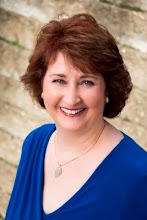Most days I’m over the
embarrassment and if just one person rethinks what they do
because of my incident, my work here is done.
I was biking on a quiet, paved path behind my seven-year-old
granddaughter. The sky was pink. A mountain loomed in the foreground. On a
slight downhill, Ainsley crouched low behind her handlebars, hair flying, pedaling like she was headed for a finish line. What a picture.
With my right hand, I
dug deep in my shorts’ pocket for my cell phone. Pulled it out. Glanced down to
open it. Looked up and there she was - right in front of me. No time to think.
My left hand hit the front brake. Hard. My bike stopped. I could feel the back
end lift. Over the handlebars I flew. I think I tucked and rolled and landed beside Ainsley.
Thank God I didn’t hit her.
I got up fast and
looked around. How stupid is that? I just crashed and my brain is worried
someone might have seen it happen.
“Gramma,” Ainsley
screamed. “Are you okay?”
“I’m fine, honey.” I
picked up my cell phone, groaned at the cracked screen and shoved it in my pocket. “Can
you lead the way back to Grampa?”
“You’re bleeding really bad.”
“Not a big deal.” I
glanced at the blood pouring from the road rash on my knee. “We have lots of band
aids. Lets go.”
Off she pedaled towards
home.
The handlebars were off
centre so my steering was all wonky but I managed to keep it straight and focused on pedaling.
“Grampa,” Ainsley
shouted. “Gramma fell off her bike.”
“I hit the front brake,”
I said.
David looked at me with
puzzled eyes. I knew those eyes were saying “what the hell, your front brake?
Why?” but his outside voice said, “Are you okay?”
“I will be.” I nodded.
I put my bike away and
took my helmet off. The top was scratched and chipped and chunks of gravel stuck out of the air vents. The visor hung on by one arm. I hooked it on my handlebar and
went to the outside tap.
First, I stuck my
bleeding palm under the cold water. It felt so good. Then my knee. Then my elbow. I repeated the process until the body parts were numb and my embarrassment subsided.
“I cannot tell a lie.”
I looked up at David. “I was getting my phone out of my pocket with my right hand
and when I looked up, I was right on Ainsley’s tail.”
He nodded. And frowned.
Checked my scrapes and got out the Polysporin.
I stayed awake long
into the night fretting about what could have happened if I hadn’t had a helmet
on. If I hadn’t stopped in time and hit Ainsley. World’s worst grandmother ever. When I closed
my eyes, the worst-case scenario made me open them again. It was a long night.
A few ribs on my left side screamed at me when I got out of bed the next morning and brushing my hair made me wince. Weeks later the ribs still reminded me of the crash.

When I see kids or
adults riding bikes without helmets, I want to yell at them to put a helmet on.
Road rash and ribs heal. The head, not so much. If you see a gramma sitting on
a street corner handing out helmets to helmetless riders, it might be me. And
yes, I will buy a new helmet for myself.
Now when I follow the
grandkids on my bike, I keep both hands on my handlebars and my head up,
capturing the moment to memory - it saves the bytes taking pictures would use and more importantly, any further
injury to myself.
You
can contact me at: bbaker.write@gmail.com
Summer
of Lies: Baker, Barbara:9780228615774: Books - Amazon.ca
What
About Me?: Sequel to Summer of Lies : Baker, Barbara: Amazon.ca: Books












.jpg)



.jpg)






.jpg)
.jpg)



.jpg)

.jpg)





.jpg)









.jpg)












